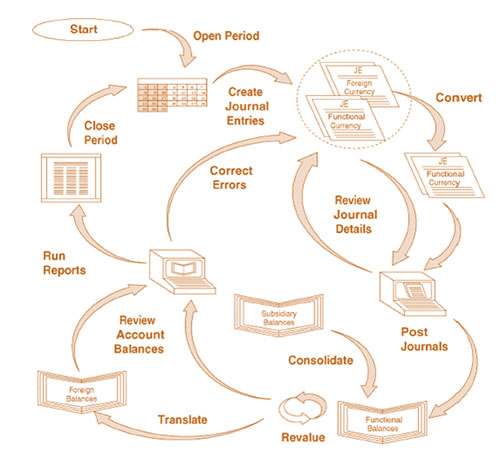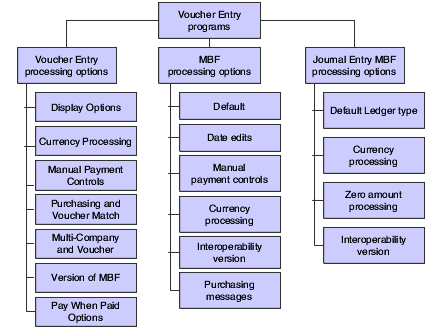
Some companies may report both GAAP and non-GAAP measures when reporting their financial results. GAAP regulations require that non-GAAP measures be identified in financial statements and other public disclosures, such as press releases. Accountants commit to applying the same standards throughout the reporting process, from one period to the next, to ensure financial comparability between periods.
Jefferies Announces Second Quarter 2023 Financial Results – StreetInsider.com
Jefferies Announces Second Quarter 2023 Financial Results.
Posted: Tue, 27 Jun 2023 20:18:07 GMT [source]
Outside of the U.S., the International Accounting Standards Board (IASB) controls a set of standards called the international financial reporting standards (IFRS). Places like the European Union, Canada, Brazil, Singapore, and more follow IFRS guidelines. Countries that do not follow the IFRS typically have their own regulated set of rules for financial reporting.
GAAP (generally accepted accounting principles)
This flexibility in applying GAAP is why financially intelligent managers need to understand the estimates, bias, and assumptions behind these judgment calls, and how they affect the financials. The Financial
Accounting Standards Board (FASB), a private, non-profit organization, is
responsible for establishing and maintaining GAAP. As GAAP issues or questions arise, these debits and credits boards meet to discuss potential changes and additional standards. For instance, when the COVID-19 pandemic hit, the board members met to address how governments and businesses must report the financial effects of the pandemic. Because GAAP standards deliver transparency and continuity, they enable investors and stakeholders to make sound, evidence-based decisions.
Where can I find GAAP standards?
The Financial Accounting Standards Board (FASB) provides free online access to the Accounting Standards Codification and is the only authoritative source for US GAAP. A four volume printed set of the Accounting Standards Codification is also available to consult in the library collection.
Instead, they use the International Financial Reporting Standards, which are based mostly on general principles. GAAP Extended DefinitionIn accounting, GAAP provides businesses with a uniform way to prepare financial statements and perform accounting tasks. GAAP helps small business owners and accounting professionals track a business’s finances. Presenting a business’s finances to outside entities (e.g., banks) becomes easier with GAAP. While all businesses are not required to use GAAP, you may want to consider preparing your financial statements with these principles.
The 10 GAAP Principles
All Integrity Network members are paid members of the Red Ventures Education Integrity Network. GAAP is outlined by the following 10 general concepts or principles. Note that this policy may change as the SEC manages SEC.gov to ensure that the website performs efficiently and remains available to all users. The codification is maintained on-line by the Financial Accounting Standards Board (FASB).

The key to proper application of GAAP, as accountants like to say, is reasonableness and consistency. So long as a company’s logic is reasonable, and so long as that logic is applied consistently, whatever it wants to do in this instance is OK. While GAAP is widely
followed in the United States, many countries adhere to the International
Financial Reporting Standards (IFRS), established by the International
Accounting Standards Board (IASB). There have been ongoing efforts to harmonize
GAAP and IFRS, with the goal of creating a single, global set of accounting
standards. With such a prominent difference in approach, dozens of other discrepancies surface throughout the standards.
Understanding GAAP
The IASB and the FASB have been working on the convergence of IFRS and GAAP since 2002. Due to the progress achieved in this partnership, the SEC, in 2007, removed the requirement for non-U.S. Companies registered in America to reconcile their financial reports with GAAP if their accounts already complied with IFRS. Companies trading on U.S. exchanges had to provide GAAP-compliant financial statements. If a financial statement is not prepared using GAAP, investors should be cautious. Without GAAP, comparing financial statements of different companies would be extremely difficult, even within the same industry, making an apples-to-apples comparison hard.
- Without these standards and practices, businesses could publish their reports differently, creating discrepancies, confusion, and potential opportunities for fraud.
- GAAP helps govern the world of accounting according to general rules and guidelines.
- She must use Generally Accepted Accounting Principles (GAAP) to reflect company accounts very carefully to ensure the success of her employer.
- Without regulatory standards, companies would be free to present financial information in whichever format best suits their needs.
Unlike GAAP, Non-GAAP does not record all sorts of financial transactions. For example, Natalie is the CFO at a large, multinational corporation. Her work, hard and crucial, effects the decisions of the entire company.
List of GAAP standards
GAAP used by any company to organise and summarise their financial transactions and information in the form of accounting records. Additionally, companies based outside of the U.S. that trade on public U.S. exchanges are typically permitted to use IFRS standards rather than adhering to GAAP. Financial Intelligence takes you through all the financial statements and financial jargon giving you the confidence to understand what it all means and why it matters.
Additionally, the accountant should document any changes made to ensure new accountants or financial team members are aware of the changes. GAAP stands for Generally Accepted Accounting Principles and refers to the standard accounting rules regarding the preparation, presentation, and reporting of financial statements in the United States. Unlike the international standard, IFRS, GAAP authorizes the use of both first in first out (FIFO) accounting and last in first out (LIFO) accounting. Accountants and other financial professionals use GAAP rules and standards to organize and present the financial reporting periodically required by publicly traded companies within the U.S. There is plenty of room within GAAP for unscrupulous accountants to distort figures. So even when a company uses GAAP, you still need to scrutinize its financial statements.
GAAP prioritizes rules and detailed guidelines, while the IFRS provides general principles to follow. Accountants following the IFRS may interpret the standards differently, leading to added explanatory documents. However, businesses that use GAAP may feel confined by the lengthy rules.
- Our objective has always been to encourage the IASB in developing financial reporting standards that meet the needs of investors, investment professionals, and other users.
- GAAP defines the standard for creating financial reports in the United States.
- GAAP is not the international accounting standard, which is a developing challenge as businesses become more globalized.
- US firms with external investors are required by the SEC to follow GAAP, while those without external investors do not have to abide by the standards.
GAAP is not the international accounting standard, which is a developing challenge as businesses become more globalized. The International Financial Reporting Standards (IFRS) is the most common set of principles outside the United States. IFRS is used in the European Union, Australia, Canada, Japan, India, and Singapore.
What are the 4 principles of GAAP?
The four basic principles in generally accepted accounting principles are: cost, revenue, matching and disclosure.
